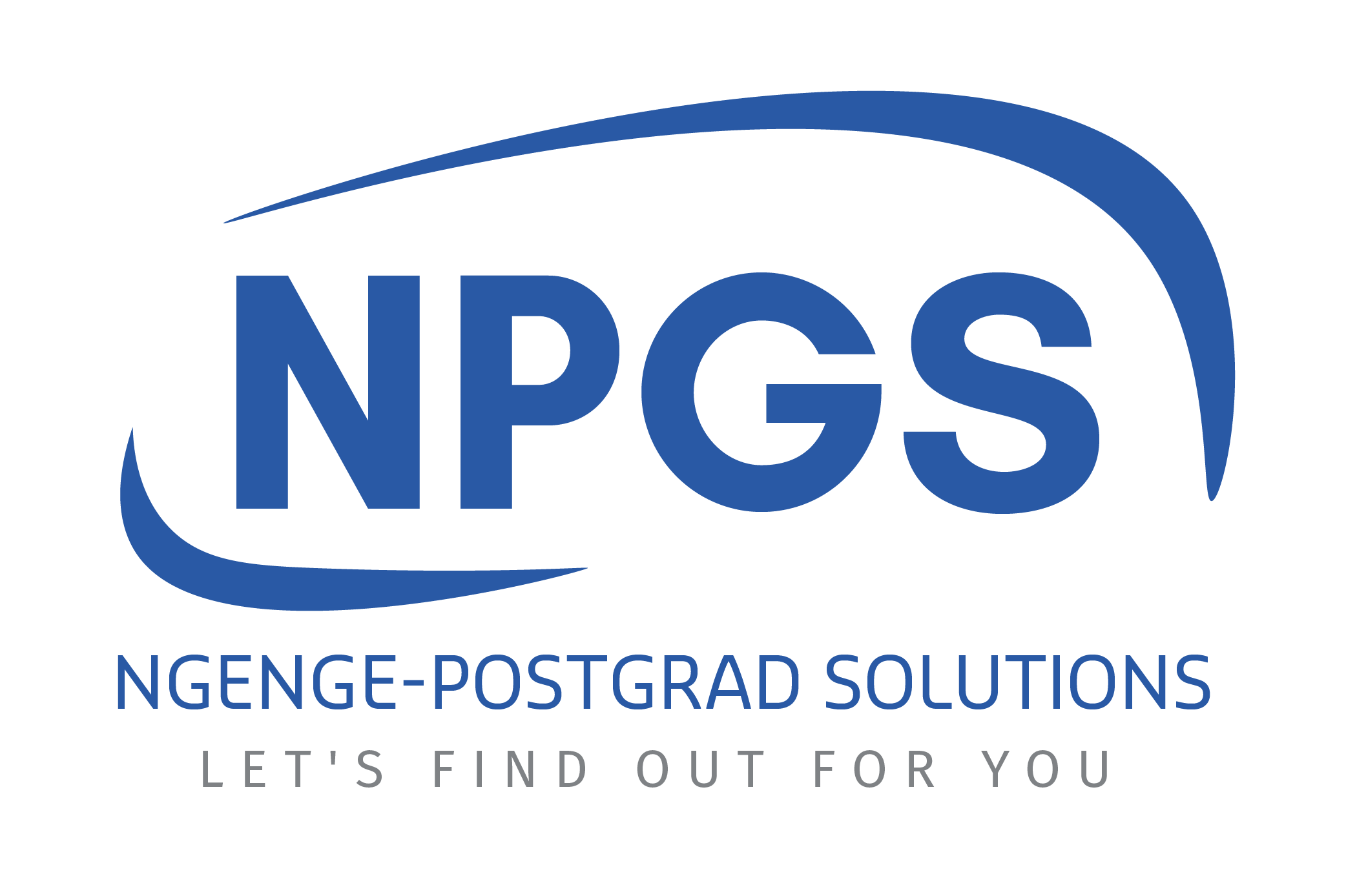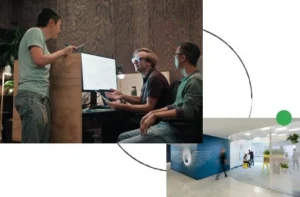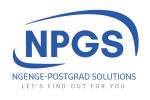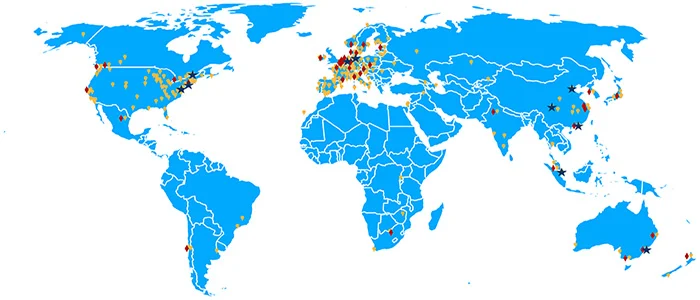NGENGE-POSTGRAD SOLUTIONS IS HERE TO HELP YOU: NPGS has an Application Help Service that can help you find a position or prepare a CV or Cover Letter. Our professional experts can also apply for you from A to Z.
Deadline: May 31, 2022
The University of Twente
The University of Twente is a Dutch university that was founded in 1896. It is located in Enschede, Netherlands. The university has 11,000 students and 3,500 staff members. It offers about 220-degree programs in various subjects such as social sciences, engineering, natural sciences, medicine and humanities.
The University of Twente has been accredited by the International Association for the Evaluation of Universities since 1997. In addition, it also holds membership in the European Association for Quality Assurance and Accreditation (ENQA).
It was ranked as one of the best 100 universities in Europe by The Times Higher Education Supplement (THE) in 2008 and 2011.
In the Netherlands, PhD students often receive a salary since they are hired as employees through a fixed-term contract. If you want to know more, read “Salary of PhD students and Postdocs in the Netherlands.”
University of Twente ranking
In 2017, the University of Twente was ranked 153 in the QS ranking and 127 among the European Universities. But in QS Global World Rankings 2022, this University ranking is 189 in the World.
Some of the best research departments in the Netherlands are the University of Twente’s data science, psychology and computer science departments.
University of Twente PhD and Postdoc Vacancies
Listed here are the vacancies for PhD and postdoctoral positions at the University of Twente. These positions will be updated on a regular basis.
Title: PHD IN UNDERSTANDING THE CURRENT STATE OF CYBERSECURITY WITH THE HELP OF MACRO AND MICRO LEVEL INDICATORS (University of Twente PhD Vacancies)
Location: The Twente University Centre for Cybersecurity Research (University of Twente PhD Vacancies)
Deadline: 31.05.2022
Work Hours: 38 – 40 hr.
Summary:
The Twente University Centre for Cybersecurity Research has a vacancy for a PhD Position in understanding the current state of cybersecurity with the help of macro and micro level indicators.
YOUR PROFILE
- We are looking for a highly motivated, entrepreneurial and enthusiastic researcher with a background in, or affinity with, researching, designing, and building dynamic modelling approaches to understand the macro and micro level indicators for the current state of cybersecurity;
- You have, or will shortly acquire, an MSc degree in Business Information Technology, Business Administration or comparable;
- You have a creative mindset and excellent analytical and communication skills;
- You have good team spirit and like to work in an interdisciplinary and internationally oriented environment
- You are proficient in English.
Further details and application here.
Title: PHD POSITION IN DYNAMIC KNOWLEDGE MODELING FOR LIFECYCLE SECURITY (University of Twente PhD Vacancies)
Location: The Twente University Centre for Cybersecurity Research (University of Twente PhD Vacancies)
Deadline: 31.05.2022
Salary: € 2,443 – € 3,122
Work Hours: 40 hr.
Summary:
The Twente University Centre for Cybersecurity Research has a vacancy for a PhD Position in Dynamic Knowledge Modelling for Lifecycle Security of Critical Infrastructures. Critical infrastructures are networked systems whose continued operation is essential to uphold certain basic requirements of life. Yet, overall approaches to incorporate newly developed security measures against cyberattacks at reasonable costs, with limited operational disturbance, and in compliance with regulation during the typically extended operational lifetime of critical infrastructures are lacking. The goal of this PhD project is to study and develop dynamic knowledge modelling approaches that provide structured knowledge on security-relevant aspects of a critical infrastructure based on real-time or historical data about the infrastructure.
To validate the results of the project, we want to design and prototype a monitoring and decision-support system based on the notions of digital twin and DevSecOps. The functionality of this system should include: collection and storage of data about the critical infrastructure, access to data and transformation into structured knowledge, API for accessing the knowledge.
YOUR PROFILE
- We are looking for a highly motivated, entrepreneurial and enthusiastic researcher with a background in, or affinity with, researching, designing, and building dynamic modelling approaches for lifecycle security;
- You have, or will shortly acquire, an MSc degree in computer science, business information technology or electrical engineering or comparable with a background in Cybersecurity;
- You have a creative mindset and excellent analytical and communication skills;
- You have good team spirit and like to work in an interdisciplinary and internationally oriented environment;
- You are proficient in English.
Title: PHD POSITION IN FEDERATED MONITORING AND AUTOMATED RESPONSE (University of Twente PhD Vacancies)
Location: The Twente University Centre for Cybersecurity Research (University of Twente PhD Vacancies)
Deadline: 31.05.2022
Salary: € 2,443 – € 3,122
Work Hours: 40 hr.
Summary:
The Twente University Centre for Cybersecurity Research has a vacancy for a PhD Position in Federated Monitoring and Automated Response.
Real-time monitoring is essential for threat detection and response. Many different monitoring approaches have been proposed in the state-of-the-art and several tools are available on the market. However, the complexity and dynamism of modern distributed environments pose a critical challenge to such tools, which are limited in terms of scalability and visibility. Additionally, in such distributed architectures it is crucial to correlate observed insights (e.g., indicators of compromise) to track lateral movement.
The goal of this PhD Project is to research novel methodologies to monitor distributed environments, ultimately aiming at threat detection, automate the extraction, learning, and correlation of cyber threat intelligence (CTI), and reason about effective and transferable threat response strategies.
YOUR PROFILE
- We are looking for a highly motivated, entrepreneurial and enthusiastic researcher with a background in, or affinity with, researching, designing, and building Federated Monitoring and Automated Response approaches for Data Security;
- You have, or will shortly acquire, an MSc degree in computer science, business information technology or electrical engineering or comparable with a background in Cybersecurity;
- You have a creative mindset and excellent analytical and communication skills;
- You have good team spirit and like to work in an interdisciplinary and internationally oriented environment;
- You are proficient in English.
Further details and application here.
Title: PHD POSITION ON INTERNET PATH SECURITY (University of Twente PhD Vacancies)
Location: The Twente University Centre for Cybersecurity Research (University of Twente PhD Vacancies)
Salary: € 2,443 – € 3,122
Work Hours: 40 hr.
Summary:
The Twente University Centre for Cybersecurity Research has a vacancy for a PhD Position on Internet Path Security.
The Border Gateway Protocol (BGP) is a core protocol of the Internet that determines how traffic is routed between the networks (Autonomous Systems) that together make up the Internet. Like many protocols that originated in the early days of the Internet, BGP has serious security issues. These vulnerabilities can be leveraged by cunning attackers to re-route traffic and hijack IP address blocks. That these vulnerabilities are not just theoretical issues is demonstrated by serious service interruptions (hijacks of Youtube traffic) and BGP hijacks that led to hundreds of millions of dollars worth in cryptocurrencies being stolen.
The goal of this PhD project is to study how we can increase Internet path security in the context of the current Internet. This work will build on existing ideas, such as RPKI and BGPsec, but also the things we can learn from novel Internet architectures such as SCION, and novel initiatives such as the proposed Autonomous System Provider Authorization (ASPA) standard. We also envisage the potential to extend path security beyond the IP domain, e.g., incorporating path information on lower layers of the OSI model, all the way down to the physical layer (as the Internet is ultimately also vulnerable to physical attacks).
YOUR PROFILE
- We are looking for a highly motivated, entrepreneurial and enthusiastic researcher with a background in, or affinity with, researching, designing, and building mechanisms to increase internet and Network Security;
- You have, or will shortly acquire, an MSc degree in computer science, business information technology or electrical engineering or comparable with a background in Cybersecurity;
- You have a creative mindset and excellent analytical and communication skills;
- You have good team spirit and like to work in an interdisciplinary and internationally oriented environment;
- You are proficient in English.
Further details and application here.
Title: POSTDOC POSITION ON MICROFLUIDIC CARTRIDGE FOR MULTI-MODAL SENSING OF INDIVIDUAL BIOMARKER PARTICLES (University of Twente Vacancies)
Location: The AMBER (Applied Microfluidics for BioEngineering Research) group
Deadline: 31.05.2022
Salary: € 3,420 – € 4,490
Summary:
The AMBER (Applied Microfluidics for BioEngineering Research) group seeks qualified candidates for a postdoc position in the frame of an EU project, Unicorn-Dx. This project aims at developing an innovative sensing platform using a multi-modal detection mechanism for the detection of biomarkers at the single-particle level. Your role in this broad project will focus on the sample preparation steps and the device integration. You will develop an integrated microfluidic platform to support a “sample-in/answer-out” paradigm for a point-of-care solution integrating adequate sensing modalities (developed by other partners). This microfluidic cartridge will be designed to be fully disposable and user-friendly, and for being employed at the point of care with a short answer (e.g., 15 min). While our overarching goal is to develop a flexible and broadly applicable sensing platform, we will focus, in this project, and as proof of concept, on the detection of acute respiratory infections.
YOUR PROFILE
- You have a PhD degree in physics, nanoscience, electrical or mechanical engineering;
- You have experience with microfluidics and cleanroom microfabrication;
- You are interested in developing new diagnostic devices and sensing applications;
- You have interest and aptitudes in modelling (not mandatory but desirable);
- You are proficient in English.
Further details and application here.
Title: PHD POSITION ON ACCUMULATION-MODE BIDISWITCH FARM FOR ENERGY EFFICIENT BATTERY CHARGERS (University of Twente PhD Vacancies)
Location: The power electronics & EMC (PE) group (University of Twente PhD Vacancies)
Deadline: 15.05.2022
Salary: € 2,443 – € 3,122
Work Hours: 40 hr.
Summary:
You will address modelling and device (TCAD) simulation aspects of these new nanoscale devices and perform extended electrical characterization. A major challenge of your research is to develop novel power semiconductor devices and perform electrical analysis of the envisaged devices.
YOUR PROFILE
- You are highly motivated and an enthusiastic researcher (F/M).
- You have a MSc degree in electrical engineering, nanotechnology, applied physics or a related topic, with excellent theoretical, programming and experimental skills.
- You have shown affinity with semiconductors, semiconductor physics and modelling.
- You have good team spirit and like to work in an internationally oriented environment.
- You are fluent in English.
Further details and application here.
Title: PDENG POSITION IN DATA DRIVEN RISK MANAGEMENT FOR FIRE SERVICES (University of Twente PhD Vacancies)
Location: The Faculty of Electrical Engineering, Mathematics and Computer Science (University of Twente PhD Vacancies)
Deadline: 31.05.2022
Salary: € 2,009
Work Hours: 40 hr.
Summary:
Are you passionate about high-end technological design? Do you want to continue
developing your skills with a combination of education and work?
The Professional Doctorate in Engineering (PDEng) programme Business & IT (BIT) offers you a 2-year position combining post-MSc education and a design project to be carried out at the University of Twente and the Twente Fire Brigade. The Faculty of Electrical Engineering, Mathematics and Computer Science at the University of
Twente, The Netherlands, invites applications for a Professional Doctorate in Engineering (PDEng fellowship) in the project ‘Data driven risk management for fire services’ funded by the Dutch Research Council. The envisaged start date is September 1st, 2022.
The educational programme, carried out at the University of Twente, will have an in-depth and broadening character with ample attention for professional development and will be partly tailored to the design project. The PDEng is a two-year post-master design programme focussing on the direct needs of industry. It combines an educational component with a research project in a professional context.
YOUR PROFILE
- You should have good programming skills, and affinity with programming, an excellent command of English, and preferably at least a reasonable command of Dutch and good academic writing and presentation skills;
- You hold a MSc degree in: Mathematics, Computer Science, Software Technology, Business Information Technology (BIT), Interaction Technology, or a related specialization;
- You have demonstrated affinity with design and multidisciplinary assignments;
- You have a passion for finding solutions for complex IT-related issues;
- You have knowledge of the programming language C# (.NET framework);
- You have excellent collaboration and communication skills;
- You are self-starting and self-motivating, willing to take initiatives and feel the responsibility for your own project;
- Applicants with a non-Dutch qualification and who have not had secondary and tertiary education in English can only be admitted with an IELTS-test showing a total band score of at least 6.5, internet TOEFL test (TOEFL-iBT) showing a score of at least 90, or a Cambridge CAE-C (CPE).
Further details and application here.
Title: PHD POSITION IN NWO-FUNDED PERSPECTIEF PROGRAMME OPTICAL WIRELESS SUPERHIGHWAYS (University of Twente PhD Vacancies)
Location: Institute for Nanotechology (University of Twente PhD Vacancies)
Deadline: 01.06.2022
Salary: € 2,443 – € 3,122
Work Hours: 38 – 40 hr.
Summary:
In the NWO-funded Perspectief programme Optical Wireless Superhighways, new perspectives can be opened for wireless communication which will offer unprecedented capacity, connection density, privacy, and energy efficiency. Five universities and a variety of industries are joining forces to explore these opportunities at all length scales: ranging from ultra-long links between satellites, to short links within indoor rooms. We are looking for enthusiastic PhD students to join our programme.
Your project:
In this project, focusing on physical layer security, we will demonstrate authentication for quantum and classical communication links with Physical Unclonable Functions (PUFs), remotely read out via a single-spatial-mode. We will use a new class of PUFs that can be read out through standard optical fibres or free-space links. Our implementation of single-mode PUFs exploits the time/frequency domain for the encoding challenge / response space. Together with the PUFs, we will develop tools to generate challenge-forming few-photon light pulses and to validate PUF responses at the few-photon level, with the aim of a proof-of-principle demonstration using the terrestrial free-space optical link developed by consortium partners.
Your research will be performed within the newly established Adaptive Quantum optics (AQO) chair in the MESA+ Institute for Nanotechology at the University of Twente. Supervisor is Prof. Pepijn Pinkse (AQO). We work closely together with our colleagues in the program, especially at the Tue. We hope to fill this position in the beginning of 2022.
YOUR PROFILE
For the area of secure communication, we are inviting candidates having a solid background in quantum optics, optical communication or integrated photonics or related, as for instance learned from a successfully finished MSc in Physics with a relevant MSc project.
Further details and application here.
Title: PHD POSITION IN IC DESIGN GROUP
(University of Twente PhD Vacancies)
Location: Integrated Circuit Design (ICD) group (University of Twente PhD Vacancies)
Deadline: 31.07.2022
Salary: € 2,443 – € 3,122
Work Hours: 40 hr.
Summary:
Professor Bram Nauta’s Integrated Circuit Design (ICD) group focuses on various aspects of analog and Radio Frequency (RF) Integrated Circuits (IC). The group’s motto is “fundamental solutions for practical problems” and under this vision, it has contributed many fundamental new ideas in circuit design. The IC Design group has made high-impact inventions in analog filters, thermal noise cancelling amplifiers, ultra-low power analog to digital converters, software-defined radio, mixer-first receivers, N-path filters and sub-sampling phase locked loops. The group is a world leader and initiator of many new research directions which also find their application in industrial products. The group has a strong collaboration with the global semiconductor industry.
YOUR PROFILE
- You are highly motivated and an enthusiastic researcher;
- You have a MSc degree with excellent grades in Electrical Engineering, with a specialization in Analog or RF design;
- You are an independent and original thinker with a creative mindset;
- You are a fast thinker with excellent analytical and communication skills;
- You have good team spirit and like to work in an internationally oriented environment;
- You are fluent in English.
Further details and application here:
Title: PHD POSITION IN ENGINEERING NOVEL ORGAN-ON-A-CHIP PLATFORMS FOR FIBROTIC DISEASES (University of Twente PhD Vacancies)
Location: The AMBER (Applied Microfluidics for BioEngineering Research) group (University of Twente PhD Vacancies)
Deadline: 31.05.2022
Salary: € 2,443 – € 3,122
Work Hours: 40 hr.
Summary:
The AMBER (Applied Microfluidics for BioEngineering Research) group seeks a qualified candidate for a PhD position in the frame of a national project conducted in close collaboration between the University of Twente and the Radboud university medical center (Radboud UMC) and four companies in the areas of microfluidics, RNA therapies and RNA diagnostics as well as the two societal partners Proefdiervrij and ReumaNederland
The 4-year project is funded through the “Open Technology Program” of the Dutch Science Organization NWO and aims to develop a next-generation model for fibrotic diseases, using an organ-on-a-chip approach. This model will include several essential physical and chemical disease-related parameters (adequate oxygen level, appropriate physical and biochemical stimuli, etc.).
YOUR PROFILE
- You have a MSc degree in engineering – either bio(medical) engineering with affinity for microfluidics / organ-on-chip models or mechanical engineering with strong affinity for biological/medical applications;
- You are interested in organ-on-chip modelling;
- You have interest and aptitude in modelling (not mandatory but desirable);
- You have experience with cell culture and molecular analysis;
- You have an independent, pro-active, and well-structured working style;
- You have excellent skills to work as part of a team;
- You have English writing and presentation skills.
Further details and application here:
NGENGE-POSTGRAD SOLUTIONS IS HERE TO HELP YOU: NPGS has an Application Help Service that can help you find a position or prepare a CV or Cover Letter. Our professional experts can also apply for you from A to Z.
GOOD LUCK!







